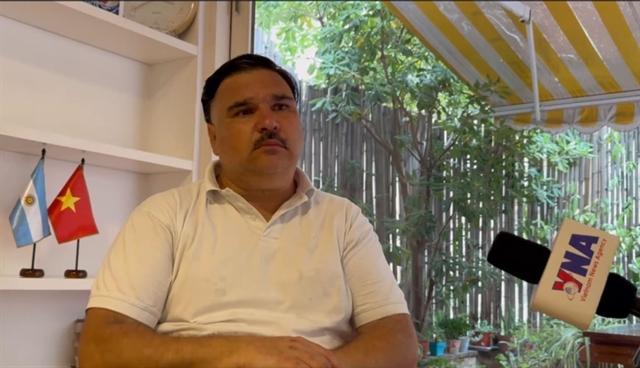 Opinion
Opinion

Lại Hồng Thanh, deputy director of the Việt Nam General Department of Geology and Mineral, speaks to Tuổi Trẻ (Youth) newspaper about measures to manage the exploitation of sand and pebbles from river beds.
 |
Lại Hồng Thanh, deputy director of the Việt Nam General Department of Geology and Mineral, speaks to Tuổi Trẻ (Youth) newspaper about measures to manage the exploitation of sand and pebbles from river beds.
What are the new points in the draft decree on the management of sand and pebbles in our rivers?
Five major policies have been covered in the new decree.
First, the exploitation of sand and pebbles from river beds is now regulated by the Law on Minerals. As we all know the movement of sand and pebbles is directly related to the stability of river beds, banks and dunes.
Second, the exploitation of sand and pebbles in all river basins nationwide should follow rules set by local authorities.
Third, the exploitation and transportation of sand and other materials from river beds must be in line with both local and central government regulations.
Fourth, the State is the sole authority allowed to organise bids for mineral exploration or exploitation activities.
That’s why when this decree comes into force, local governments will be allowed to hold auctions on sand exploitation.
Sand exploitation can cause erosion in a neighbouring locality. How will this problem be settled?
In the draft decree, we have stated clearly the need to have close-co-ordination and co-operation among People’s Committees of all provinces sharing the river basin. We realise that planning is only a part of the task of a regional goal which requires the involvement of many different stakeholders. As a result, the exploitation of river sand is just a part of regional planning work.
Việt Nam has more than 300 river basins nationwide which are shared by at least two provinces. To avoid problems, the Government has come up with a co-operation mechanism for localities that share the same river. Based on the environmental impact assessment on the exploitation of each river, the Government will come up with a plan on how to exploit the river’s potentials for each province.
Does the draft decree have any sanctions for senior officials who fail to perform their duties properly?
The draft includes sanctions for senior officer who fail to perform their duties. There are three levels of punishment depending on the nature of the incident – reprimand, warning and demotion.
The draft also states clearly that heads of provincial People’s Committees are given the right to punish subordinates who have failed to accomplish their duties at both district and communal levels.
Do you think the measures outlined in the draft will put a halt to the “acute” problem of “sand pirates”?
I can’t say for sure that we will win the battle against “sand pirates”, but we’ll try to do our best to create positive changes in the exploitation of sand from rivers. I also hope we will receive public support for our efforts. _VNS




